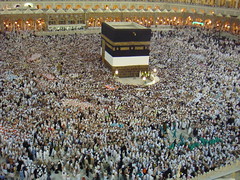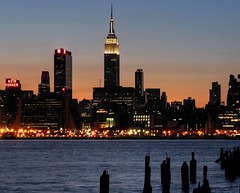Unit 3 Flashcards AP World history Flashcards
Terms : Hide Images [1]
| 3410472573 | Aristocracy | A government in which power is in the hands of a hereditary ruling class or nobility |  | 0 |
| 3410491735 | Caliphate | Islamic empire ruled by those believed to be the successors to the Prophet Muhammad. |  | 1 |
| 3410491736 | City-State | A sovereign state comprising a city and its immediate hinterland. |  | 2 |
| 3410516868 | Civil Service | A system of hiring and promotion based on the merit principle and the desire to create a nonpartisan government service. |  | 3 |
| 3410523714 | Cultural Diffusion | The expansion and adoption of a cultural element, from its place of origin to a wider area. |  | 4 |
| 3410541987 | Decentralized | governmental power is spread among more than one person or group | 5 | |
| 3410548135 | Dowry | Custom in which the family of a woman transfers property or wealth to her and/or her husband's family upon her marriage |  | 6 |
| 3410556074 | Eastern Orthodox | The Christian religion of the Byzantine Empire in the middle east that formed from Christianity's schism between the remains of the western and eastern Roman Empire. The Christian church ruled by the Byzantine emperor and the patriarchs of various historically significant Christian centers/cities. |  | 7 |
| 3410565827 | Fiefs | pieces of land given to vassals by their lord |  | 8 |
| 3410569632 | Renaissance | "rebirth"; following the Middle Ages, a movement that centered on the revival of interest in the classical learning of Greece and Rome | 9 | |
| 3410579085 | Hajj | A pilgrimage to Mecca, performed as a duty by Muslims |  | 10 |
| 3410586334 | heretic | a person who holds religious beliefs in conflict with the dogma of the Roman Catholic Church | 11 | |
| 3410590709 | Infrastructure | Fundamental facilities and systems serving a country, city, or area, as transportation and communication systems, power plants, and schools | 12 | |
| 3410595034 | Inquisition | A Roman Catholic tribunal for investigating and prosecuting charges of heresy - especially the one active in Spain during the 1400s. | 13 | |
| 3410610213 | Islam | A religion based on the teachings of the prophet Mohammed which stresses belief in one god (Allah), Paradise and Hell, and a body of law written in the Quran. Followers are called Muslims. |  | 14 |
| 3410619418 | Matriarch | a female head of a family or tribe |  | 15 |
| 3410626002 | Medieval | referring to the Middle Ages |  | 16 |
| 3410631460 | Meritocracy | a system in which promotion is based on individual ability or achievement | 17 | |
| 3410634586 | Middle Ages | Also known as the medieval period, the time between the collapse of the Roman Empire in the fifth century AD and the beginning of the Renaissance in the fourteenth century. | 18 | |
| 3410636640 | Mosque | A Muslim place of worship |  | 19 |
| 3410641624 | Muslim | A follower of Islam |  | 20 |
| 3410674085 | Nation-State | A state whose territory corresponds to that occupied by a particular ethnicity that has been transformed into a nationality |  | 21 |
| 3410677587 | Patriarch | the male head of a family or tribe |  | 22 |
| 3410681567 | Pilgrimage | A journey to a place considered sacred for religious purposes. |  | 23 |
| 3410684896 | Roman Catholic | the Christian Church based in the Vatican and presided over by a pope and an episcopal hierarchy | 24 | |
| 3410695441 | Schism | (n.) a formal split within a religious organization; any division or separation of a group or organization into hostile factions |  | 25 |
| 3410701102 | Serfs | A person who lived on and farmed a lords land in feudal times |  | 26 |
| 3410706765 | Theocracy | A government controlled by religious leaders |  | 27 |
| 3410712147 | Tribute Systems | allowed reciprocal trade under both imperial protection and imperial regulation and barred entry into this trade by those who did not participate | 28 | |
| 3410719960 | urbanization | An increase in the percentage and in the number of people living in urban settlements. |  | 29 |
| 3410727617 | vassals | Members of the military elite who received land or a benefice from a lord in return for military service and loyalty |  | 30 |
| 3410736443 | Byzantium | the eastern portion of the Roman empire; lasted 1000 years after the fall of Western Rome |  | 31 |
| 3410740328 | Baghdad | Capital of Iraq |  | 32 |
| 3410746008 | Bubonic Plague | disease brought to Europe from the Mongols during the Middle Ages. It killed 1/3 of the population and helps end Feudalism. Rats, fleas. |  | 33 |
| 3410750844 | Chang'an | Capital of Tang dynasty; population of 2 million, larger than any other city in the world at that time. | 34 | |
| 3410755377 | Constantinople | A large and wealthy city that was the imperial capital of the Byzantine empire and later the Ottoman empire, now known as Istanbul |  | 35 |
| 3410758205 | Empress Wu | the only woman to rule China in her own name, expanded the empire and supported Buddhism during the Tang Dynasty. |  | 36 |
| 3410761172 | Feudalism | A political system in which nobles are granted the use of lands that legally belong to their king, in exchange for their loyalty, military service, and protection of the people who live on the land |  | 37 |
| 3410764010 | Franks | A Germanic people who settled in the Roman province of Gaul. | 38 | |
| 3410777210 | Genghis Khan | Founder of the Mongol Empire. |  | 39 |
| 3410786538 | Hanseatic League | An economic and defensive alliance of the free towns in northern Germany, founded about 1241 and most powerful in the fourteenth century. |  | 40 |
| 3410789801 | Hundred Years War | Series of campaigns over control of the throne of France, involving English and French royal families and French noble families. | 41 | |
| 3410795745 | Code of Justinian | To organize the Roman Law into an orderly body of rules because Roman law had way too many laws and no one was clear on what the specific laws were so it needed to be cleaned up and organized into one set code of laws |  | 42 |
| 3410800282 | Mansa Musa | Emperor of the kingdom of Mali in Africa. He made a famous pilgrimage to Mecca and established trade routes to the Middle East. |  | 43 |
| 3410804324 | Magna Carta | (1215) a charter of liberties (freedoms) that King John "Lackland" of England was forced to sign; it made the king obey the same laws as the citizens of his kingdom | 44 | |
| 3410812766 | Neo-Confucianism | term that describes the resurgence of Confucianism and the influence of Confucian scholars during the T'ang Dynasty; a unification of Daoist or Buddhist metaphysics with Confucian pragmatism |  | 45 |
| 3410820648 | Shintoism | Religion located in Japan and related to Buddhism. Shintoism focuses particularly on nature and ancestor worship. |  | 46 |
| 3410824693 | Timbaktu | Center of learning and trade, Mali | 47 | |
| 3410852641 | Tenochtitlan | Capital of the Aztec Empire, located on an island in Lake Texcoco. Its population was about 150,000 on the eve of Spanish conquest. Mexico City was constructed on its ruins. |  | 48 |
| 3410856480 | William the conqueror | duke of Normandy who led the Norman invasion of England and became the first Norman to be King of England |  | 49 |
| 3410860893 | St. Cyril | Developed the Cyrillic alphabet to translate the bible for Slavic peope |  | 50 |
| 3410867307 | Cyrillic Alphabet | an alphabet drived from the Greek alphabet and used for writing Slavic languages | 51 |
